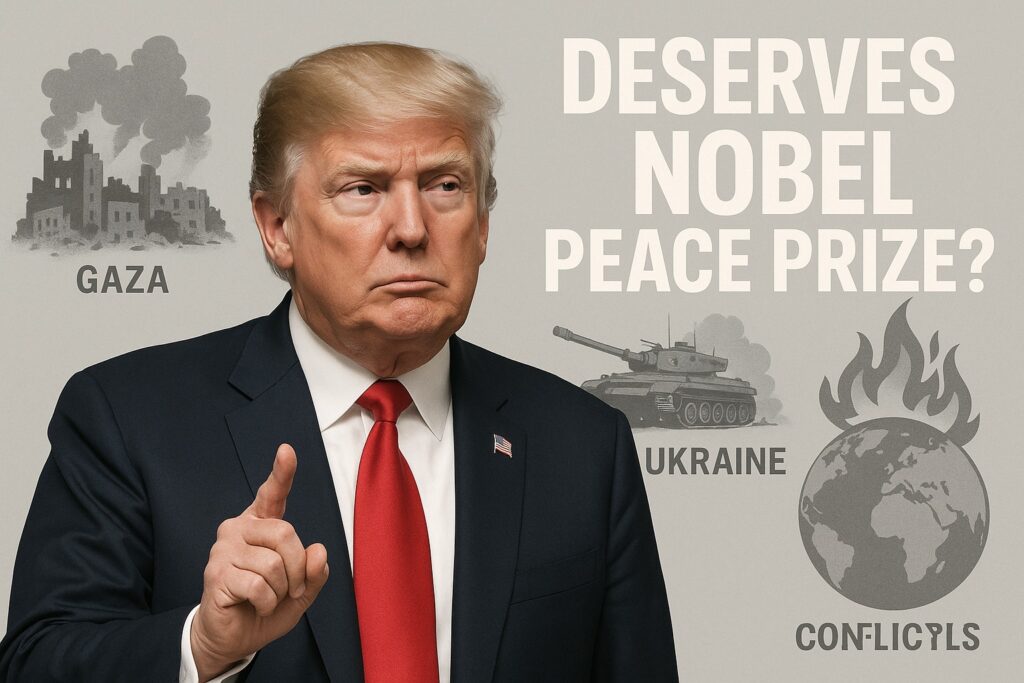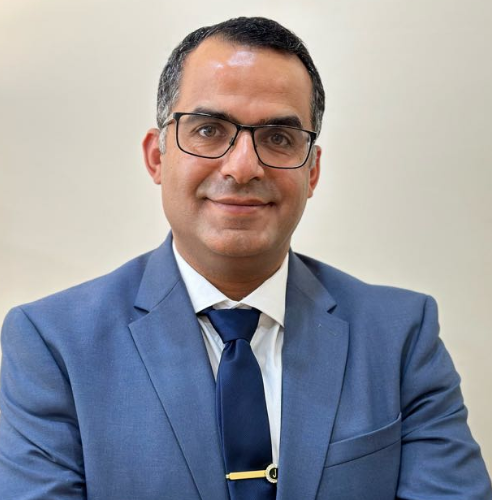The Nobel Peace Prize, established in 1901, recognizes individuals or organizations that have made significant contributions to fostering fraternity among nations, reducing military forces, and promoting peace.
In recent years, discussions surrounding the Nobel Peace Prize have frequently sparked debates about the criteria for genuine contributions to global peace. U.S. President Donald Trump has frequently highlighted his foreign policy achievements, including the Abraham Accords and several initiatives he considers milestones toward global peace, as evidence of his eligibility for this prestigious award. However, the ongoing conflicts in regions such as Gaza and Ukraine, along with other global tensions, highlight a sobering reality: peace is not the accomplishment of a single leader. Rather, it is a complex and multifaceted process that necessitates sustained collaboration, empathy, and the ability to address deep-rooted, structural inequalities.
The Nobel Peace Prize, established in 1901, recognizes individuals or organizations that have made significant contributions to fostering fraternity among nations, reducing military forces, and promoting peace. Historically, laureates have included political figures such as Nelson Mandela and grassroots activists such as Malala Yousafzai. Their work often exemplifies a shared set of qualities: commitment to justice, courage in the face of adversity, and ability to mobilize communities toward collective well-being. In the contemporary global landscape, challenges to peace have become increasingly multifaceted. Conflicts are seldom restricted to a single nation or region; they frequently encompass economic disparities, climate change, and geopolitical rivalries. Consequently, genuine peace cannot be assessed solely by the signing of agreements or the negotiation of temporary ceasefires. Instead, it necessitates enduring solutions that address fundamental issues, such as poverty, discrimination, and systemic oppression.
Today’s Nobel Peace Prize recipients must exhibit strategic acumen, humility, and a comprehensive understanding of interconnected global systems. International collaboration is crucial for establishing sustainable global peace. No single nation or leader can solve conflicts that cross borders or involve multiple parties independently. For example, the ongoing conflict in Ukraine highlights the importance of coordinated diplomatic efforts, humanitarian aid, and economic sanctions as tools to support peace in the region. Likewise, in regions such as the Middle East, successful negotiations often require the involvement of international mediators, non-governmental organizations, and civil society groups. Leaders who adopt collaboration, consider different perspectives, and focus on dialogue rather than unilateral actions are more likely to make lasting contributions to global stability.
Moreover, the qualities that deserve a Nobel Peace Prize go beyond the political tactics. Empathy, moral courage, and genuine dedication to human rights are the essential hallmarks of true peace leadership. Consider individuals like Nihon Hidankyo’s Nobel Peace Prize for its powerful activism against nuclear weapons, which was inspired by survivors who turned their suffering into a global call for disarmament. Likewise, Wangari Maathai, who advocated for environmental conservation to advance social justice, showed how protecting the planet can foster peace. Their accomplishments illustrate that peace extends beyond the mere absence of conflict to encompass the establishment of equitable and sustainable conditions that enable communities to prosper and thrive.
In the process of evaluating candidates for the Nobel Peace Prize, it is imperative to prioritize tangible and demonstrable contributions over mere rhetoric. We must consider how they effectively bridged cultural or ideological divides to promote genuine understanding. Furthermore, it is crucial to assess the specific ways in which these initiatives have alleviated human suffering or safeguarded the most vulnerable populations globally. These considerations are pertinent not only to Nobel nominees but also to all leaders who profess to serve humanity as we explore the potential for global collaboration to achieve enduring peace in our increasingly interconnected world. Moreover, it is essential to recognize and support individuals whose actions inspire compassion, hope, and cooperation across international borders in our global society.
Leadership that adeptly advances reconciliation, justice, and mutual understanding is worthy of the Nobel Peace Prize, rising above personal ambition and national interest. True peace is defined by the principles of collaboration, inclusivity, and resilience—qualities that every Nobel Peace Prize laureate must embody to leave a lasting impact on humanity. The pursuit of peace extends beyond symbolic gestures and political declarations. In a world characterized by conflict, division, and global challenges, vision, compassion, and sustained international cooperation are required. True peace is not a political accolade but a profound moral obligation that transcends political boundaries. It demands humility, perseverance, and courage to act selflessly for the collective benefit. Those who exemplify these values, whether through diplomacy, activism, or education, are the rightful recipients of the Nobel Peace Prize in the contemporary world.

